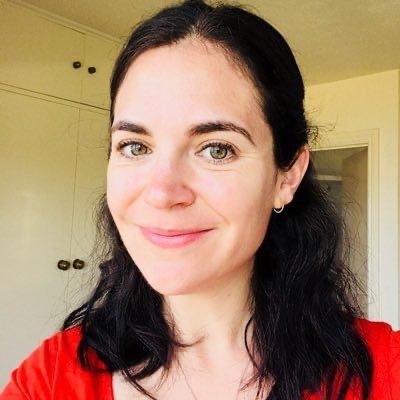
Staff reader Anna Jastrzembski talks with British playwright Charlotte Turnbull about structure, prescribed gender roles, and her performance piece, no home for a kraken, from NER 43.4.
Anna Jastrzembski: no home for a kraken was initially a short story which you then adapted into an audio piece. This surprised me, as I feel like the piece lends itself so well to the dramatic form. You’re able to conjure up three distinct spaces that manage to exist simultaneously onstage—the mothers’ writing group, the domestic world Lucy inhabits, and the watery world of the kraken. Now that you’ve explored the story in both prose and audio-format, do you foresee mounting a stage production?
Charlotte Turnbull: This story was produced in one of those fevered, sweaty manias and ‘fell out’ dramatically, as confession, in monologue. I do hope to extend the piece for stage. Adapting the piece for audio theatre heightened the backdrop. The soundscape allowed the banal domestic to become more oppressive and more sinister, which could go further again on stage. Plus, Lucy’s two conflicting voices would be beautiful in performance.
AJ: Do you prefer writing prose to drama, or vice-versa? Do you find one more challenging than the other? How do you decide which form you want a new piece to take?
CT: I find all writing challenging, but I’ve come to think prose is a better place to start. For me, prose provides more space to explore and experiment with ideas. Without having to prioritise the experience of an audience, excavating emotion can be more efficient and intimate.
AJ: I loved your use of language throughout—it was both playful and lush, yet managed to convey a character who was clearly struggling. When we are first introduced to the “kraken” it’s a children’s toy covered in “plush tangerine fur,” yet by the end it starts to devour the narrator. Do you see the kraken as a kind of hostile embodiment of the domestic space? What led you to the image of a kraken in the first place?
CT: Absolutely, the kraken is a hostile embodiment. I’m interested in the taboos of women’s roles—the unpalatable, hidden oppressions of mundane and ordinary lives. I use a lot of folklore in my writing, and often (usually?) it rises straight out of the landscape I’m evoking, then sometimes, like unpalatable hidden oppression, it is as jarring as a kraken on a moor, and at odds with landscape as we see it.
I have young children and my home is filled with charming, horrifying toys, including one plush, tangerine colossal squid. I’m actually incredibly fond of it—and indeed the children themselves . . .
AJ: I can imagine that Lucy’s refrain of “I can use this” will feel familiar to most writers—that feeling of looking at our surroundings from a slight remove, filing away bits of information and images and ideas we can use in a story later on. Is this something that you relate to? How do you organize your own thoughts and story ideas? What are your greatest challenges when approaching a new piece of work?
CT: I really relate to it. I can find myself muttering ‘this is a story’ while simply loading the washing machine, and frequently have to remember there are other important things in life, as well as art, so as not to be rinsing every situation for pathos, or similar. I keep books of notes and ideas, although usually anything I commit to has stuck out in my head over time. The greatest challenge is always finding the appropriate structure and then, depending on length, maintaining stamina.
AJ: Who are your favorite playwrights? Are you inspired by any in particular?
CT: There is a short play by Lucy Kirkwood called Psychogeography, which really stayed with me—a lot was achieved, briefly. I also love The Pillowman by Martin McDonagh.
AJ: What are you reading right now?
CT: Precious Bane by Mary Webb and Briefly, A Delicious Life by Nell Stevens.
Anna Jastrzembski is a New York City and Santa Fe-based playwright, television writer, and lyricist. She graduated with an MFA in Playwriting from Columbia University in 2019. Anna’s work often combines a relentless interrogation of the status quo with an embrace of the fantastic. Recent credits include A Modest Proposal (The Studio at The Cherry Lane Theatre), DOG (Signature Theatre Studio), The Happy Garden of Life (The New Ohio), TRAFFIC (The Exponential Festival), and FEAST (The Tank NYC).